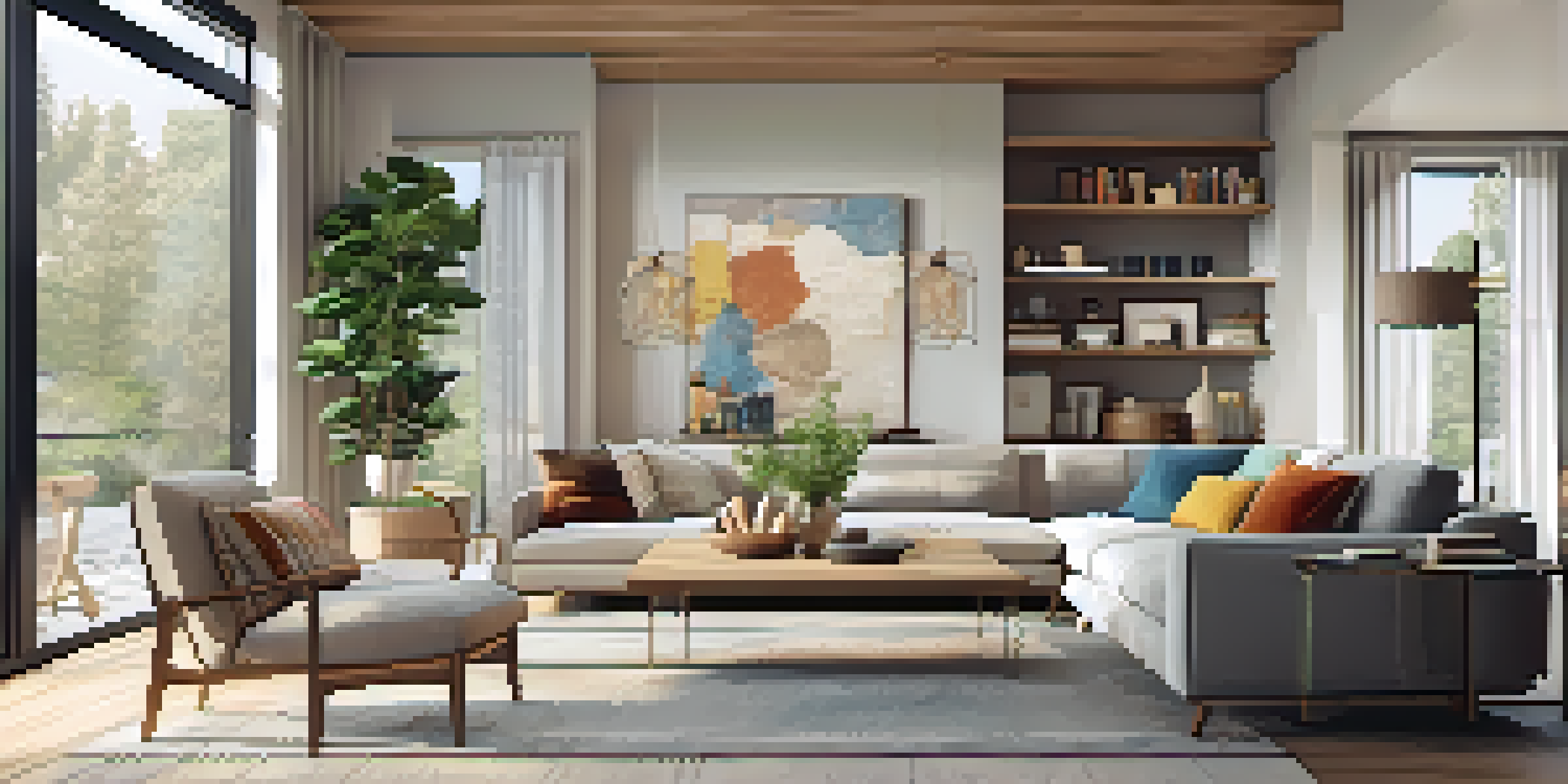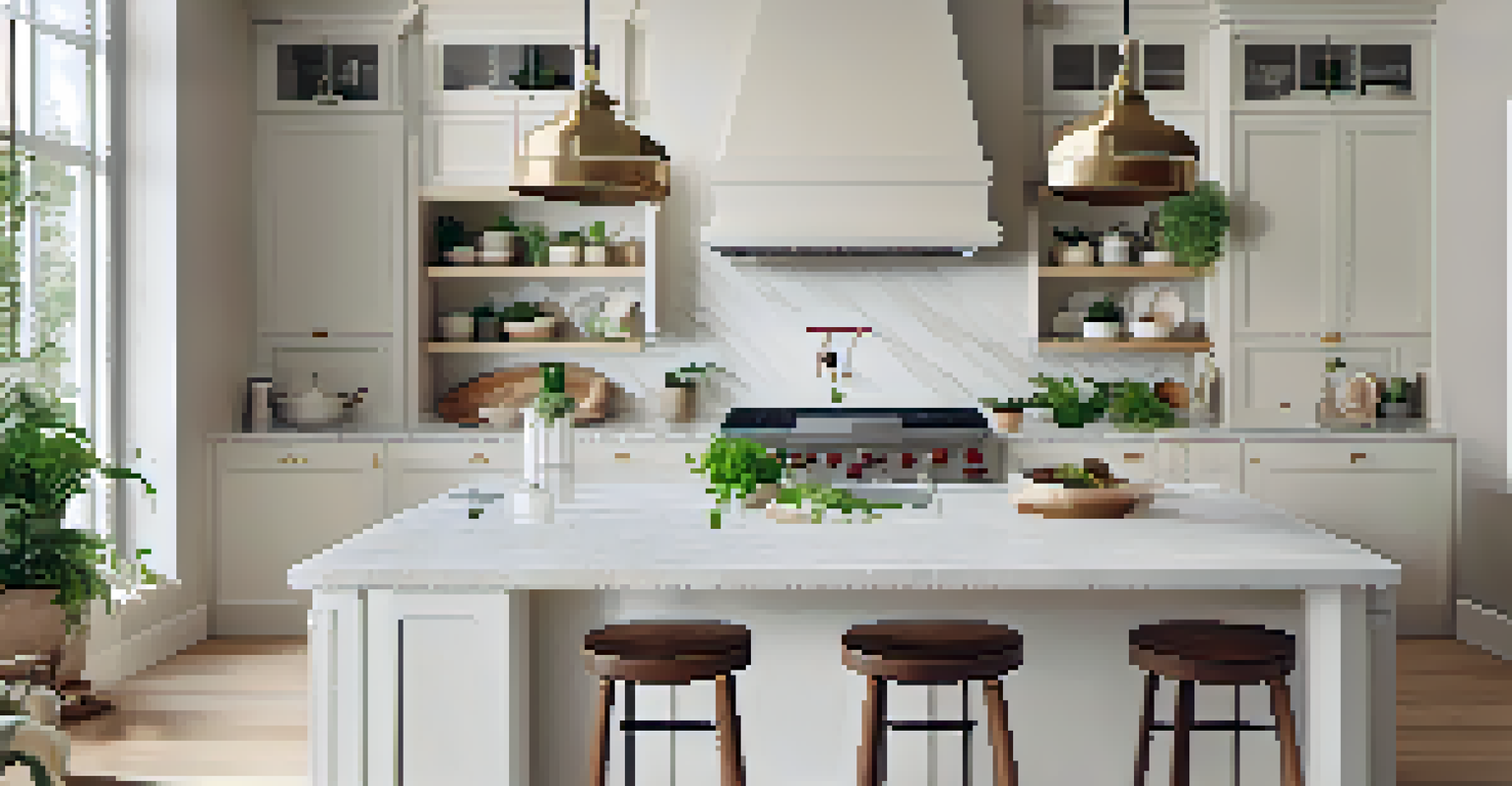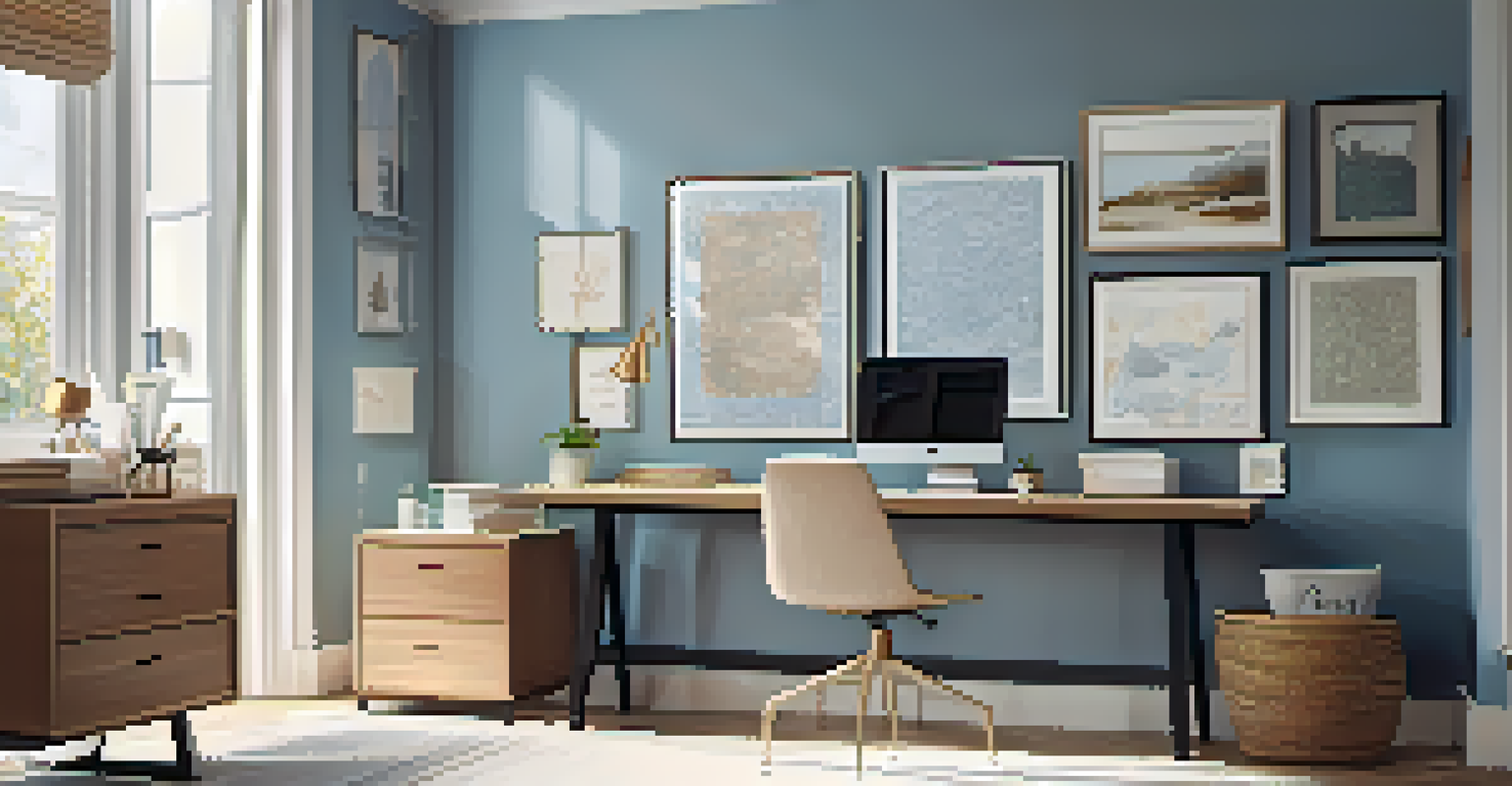Overcustomizing Your Home: Renovation Pitfalls to Avoid

Understanding the Risks of Overcustomization
Overcustomizing your home can seem like a great way to express your unique style, but it can lead to several pitfalls. When you make overly personalized choices, you may alienate potential buyers if you ever decide to sell. This can significantly reduce your home's market value, making it harder to recoup your renovation costs down the line.
Good design is about more than just aesthetics; it's about creating a space that is both beautiful and functional.
Think about it: a bright purple kitchen might feel fabulous to you, but it could leave others scratching their heads. It’s essential to strike a balance between personal flair and universal appeal. The more you customize, the more you may narrow your home’s marketability.
Ultimately, it’s crucial to consider how your renovations will be perceived by others, not just yourself. Keeping a few timeless elements can help ensure that you enjoy your space today while preserving its value for tomorrow.
Ignoring Functionality for Aesthetic Appeal
It’s easy to get carried away with aesthetics during renovations, but it’s vital to remember that functionality should come first. For example, you might love the idea of an open-concept living space, but if it disrupts the flow of traffic in your home, it can become more of a headache than a haven.

A beautiful but impractical layout can lead to frustration on a daily basis. Therefore, it’s essential to blend beauty with usability. A well-designed space marries both elements, ensuring that your home is as enjoyable to live in as it is to look at.
Balance Customization and Market Value
Overcustomizing your home can alienate potential buyers and reduce its market value.
Before diving into renovations, consider your daily routines and how your space can enhance them. A well-thought-out plan can help you create a home that reflects your style while also being functional for everyday life.
Choosing Trendy Features That Quickly Date Your Home
Trends come and go faster than you can say 'open floor plan.' While it’s tempting to incorporate the latest design fads into your renovation, doing so can lead to a home that feels dated in just a few years. Instead, consider timeless design choices that will stand the test of time.
A home should be a place of harmony, where comfort meets style and practicality is not sacrificed for beauty.
For instance, while you might be drawn to the current obsession with barn doors, think about whether they'll still feel fresh in a decade. Opting for classic fixtures and finishes can help ensure that your home remains stylish and appealing long after trends have passed.
Remember, renovations are often significant investments of time and money. By focusing on timeless elements, you can create a space that feels current now and remains relevant in the years to come.
Neglecting Budget Constraints During Renovations
One of the biggest pitfalls in home renovations is losing sight of your budget. It’s easy to get swept up in the excitement of choosing new features and finishes, but ignoring financial limitations can lead to stress and disappointment later. Keeping a close eye on your spending will help you avoid overshooting your budget.
Before starting your project, set a realistic budget that includes a contingency fund for unexpected costs. Renovations often come with surprises—like finding mold behind the walls or needing to upgrade electrical systems—that can quickly drain your funds.
Prioritize Functionality in Design
Aesthetic choices should not compromise the functionality of your space, ensuring it’s enjoyable to live in.
Planning ahead financially can help you stay on track and ensure that your dream renovations don’t turn into a financial nightmare. A well-planned budget allows you to enjoy the process without the looming worry of overspending.
Choosing the Wrong Professionals for Your Renovation
Selecting the right professionals for your renovation is crucial, yet it’s a step many homeowners overlook. Whether you're hiring a contractor, designer, or architect, the expertise of these individuals can make or break your project. A poorly chosen contractor can lead to subpar work and a frustrating experience.
Take the time to research and interview multiple professionals before making a decision. Look for reviews, ask for references, and see previous projects to ensure they align with your vision. The right team can turn your renovation dreams into a reality, while the wrong choice can lead to costly mistakes.
Remember, your home is a significant investment. Choosing the right professionals will not only enhance the quality of your renovation but also provide peace of mind throughout the process.
Overlooking Local Building Codes and Regulations
Before embarking on any renovation journey, it’s vital to familiarize yourself with local building codes and regulations. Ignoring these can lead to legal issues and costly fines. Each area has specific guidelines that dictate what can and cannot be done during renovations.
For instance, adding an extension to your home might require specific permits, and failing to obtain these can result in having to undo the work. Additionally, understanding regulations can help you make informed decisions about your renovations, ensuring safety and compliance.
Consider Resale Value in Renovations
Keeping resale value in mind during renovations can help you make more balanced and appealing choices.
Taking the time to research these requirements can save you a lot of headaches down the road. It’s a small step that can make a significant difference in the success of your renovation project.
Failing to Consider Resale Value in Your Renovation Plans
While it’s easy to focus solely on your personal tastes during renovations, it’s essential to keep resale value in mind. Future buyers may not share your vision, and overly personalized choices can deter them. By thinking ahead about resale potential, you can make more balanced decisions.
For example, investing in a high-end kitchen remodel may seem appealing, but if it overshadows other areas of the home, potential buyers might see it as disproportionate. Instead, aim for improvements that enhance the overall appeal of your home without alienating future owners.

By considering resale value alongside your personal preferences, you can create a home that feels uniquely yours while also being attractive to a broader audience.